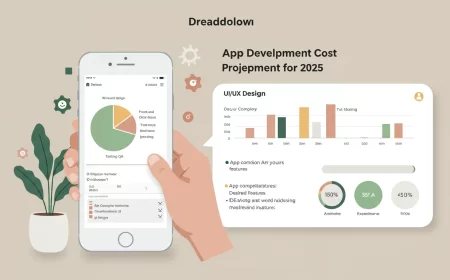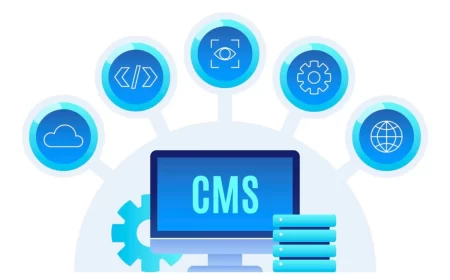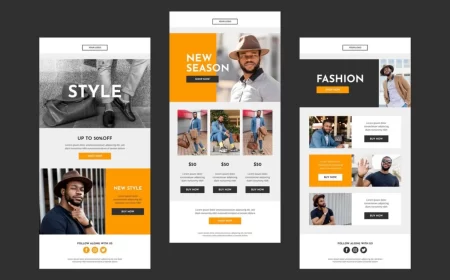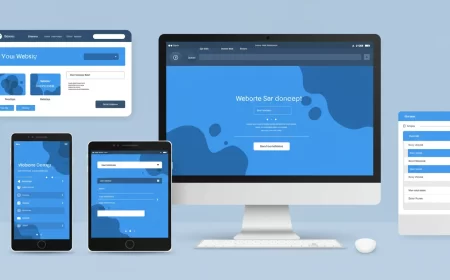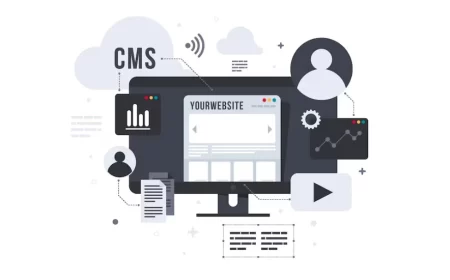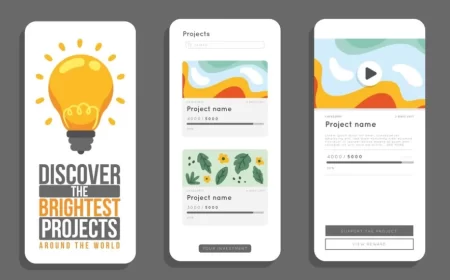In today’s digital-first world, a well-crafted website is the cornerstone of success for businesses, organizations, and individuals alike. Whether you’re launching a new venture, revamping an existing online presence, or building a complex web application, the expertise of a skilled web developer is indispensable. But with a vast and diverse talent pool, the process of finding the right digital architect for your project can feel daunting.
This comprehensive guide will demystify the process of hiring a web developer. We’ll walk you through defining your project needs, exploring various avenues for finding talent, understanding what to look for in a developer, weighing the pros and cons of freelancers versus agencies, and navigating the crucial aspects of budgeting and communication. By the end of this guide, you’ll be equipped with the knowledge and strategies to confidently find a web developer who can bring your digital vision to life.
1. Define Your Project Needs and Goals
Before you even begin your search, clarity is paramount. A well-defined project scope will not only help you identify the right type of developer but also streamline the hiring process and ensure accurate cost estimates.
- What is the Purpose of Your Website/Application?
- Is it a simple informational site, a blog, an e-commerce store, a complex web application, or a portfolio?
- What specific problems will it solve for your users or your business?
- What Functionality Do You Need?
- List all essential features (e.g., user accounts, payment processing, content management system, booking system, search filters, interactive elements).
- Distinguish between “must-haves” and “nice-to-haves.”
- What is Your Timeline?
- Do you have a strict deadline, or is there flexibility? This impacts the type of developer you can hire (e.g., full-time vs. part-time vs. project-based).
- What is Your Budget?
- Having a realistic budget range will narrow down your options significantly. Costs can vary widely based on complexity, developer experience, and location.
- What is the Scope of Work?
- Are you building from scratch, redesigning an existing site, adding new features, or just performing maintenance?
- What Technologies Are Involved (if known)?
- Do you need a developer proficient in specific languages (e.g., JavaScript, Python, PHP), frameworks (e.g., React, Angular, Vue.js, Django, Laravel), or CMS platforms (e.g., WordPress, Shopify)? If you don’t know, the developer can advise.
Tip: Create a detailed project brief or Request for Proposal (RFP) that outlines all these points. This document will be invaluable when communicating with potential developers.
2. Where to Find a Web Developer: Top Avenues
The digital age offers numerous platforms and methods for sourcing web development talent. Each has its unique advantages and is suited for different hiring needs.
A. Freelance Marketplaces (Cost-Effective & Flexible)
These platforms connect businesses with independent contractors globally. They are excellent for project-based work, specific tasks, or when budget flexibility is a priority.
- Upwork: One of the largest freelance marketplaces. You can post jobs, receive proposals, review portfolios, and use built-in tools for communication and time tracking. Offers a vast pool of diverse skills and price points.
- Fiverr: Known for its “gig” economy, where freelancers offer predefined services at set prices (starting from $5). Ideal for smaller, well-defined tasks like landing page creation, bug fixes, or specific design elements.
- Freelancer.com: Similar to Upwork, allowing you to post projects and receive bids from a global talent pool. High competition can sometimes lead to lower prices.
- PeoplePerHour: Focuses on connecting businesses with freelancers for hourly or fixed-price projects, with a strong emphasis on quality and customer service.
- Toptal: A premium platform that vets developers rigorously (claiming to accept only the top 3% of talent). Ideal for complex projects requiring highly skilled, senior developers, though at a higher price point. Offers rapid matching.
- Lemon.io: Specializes in matching clients with vetted developers quickly, often within 24 hours. Focuses on quality and a good price-quality balance for dedicated developers.
- Twine: Connects businesses with a curated selection of expert web developers through a rigorous vetting process. You submit project details and get matched with suitable professionals.
B. Professional Networking Sites & Job Boards (Targeted & Direct)
For more direct hiring, especially for full-time or long-term contract roles.
- LinkedIn: The professional social network. You can search for developers, post job listings, and leverage your network for referrals. Great for assessing professional backgrounds and connections.
- GitHub Jobs: A job board specifically for developers, often attracting individuals passionate about coding and open-source contributions. Allows you to review candidates’ code repositories.
- Stack Overflow Jobs: Another developer-focused job board from the popular Q&A site for programmers. Attracts developers who are actively engaged in the tech community.
- Wellfound (formerly AngelList Talent): Popular for startups looking to hire tech talent, including web developers. Focuses on connecting companies with individuals interested in startup environments.
- Industry-Specific Job Boards: Look for job boards related to specific technologies (e.g., React job boards, WordPress job boards) or your industry.
C. Development Agencies (Full-Service & Managed)
Agencies offer a team of specialists (developers, designers, project managers, QA testers) and a structured process.
- Local Agencies: Search for “web development agency [your city]” to find local firms. This can facilitate in-person meetings and better understanding of local market nuances.
- Specialized Agencies: Some agencies focus on specific industries (e.g., healthcare, e-commerce) or technologies (e.g., Shopify Plus development, custom SaaS development).
- Referrals: Ask your network for recommendations. A personal referral can often lead to a trusted partner.
D. Online Communities & Forums
Engage with developer communities where professionals discuss technologies and share insights.
- Reddit (e.g., r/webdev, r/forhire): Subreddits dedicated to web development and hiring can be good places to post your needs or find active developers.
- Discord Servers: Many tech communities have Discord servers where you can connect with developers.
- Meetup Groups: Attend local web development Meetups to network and find talent.
3. What to Look for When Hiring a Web Developer
Beyond technical skills, the right developer will possess a blend of qualities that ensure a successful collaboration.
A. Technical Proficiency & Experience
- Relevant Tech Stack: Do they have proven experience with the specific programming languages, frameworks, and tools your project requires (e.g., HTML, CSS, JavaScript, React, Node.js, Python, PHP, Ruby, databases like SQL/NoSQL)?
- Portfolio: A strong portfolio showcasing past projects is essential. Look for:
- Projects similar in scope and complexity to yours.
- Live websites you can interact with.
- Their specific role in each project (e.g., front-end, back-end, full-stack).
- Problem-Solving Skills: Web development is largely about solving problems. Ask them to describe how they approached challenges in past projects.
- Code Quality: While you might not be a developer, ask about their approach to clean, well-documented, and scalable code. (If hiring through a platform like Toptal, vetting often covers this.)
- Understanding of Best Practices: Do they follow modern web standards, security protocols, and performance optimization techniques?
B. Soft Skills & Communication
- Communication: This is critical. Look for clear, concise, and proactive communicators. They should be able to explain technical concepts in understandable terms.
- Problem-Solving: Beyond technical ability, can they think critically and propose effective solutions to challenges?
- Attention to Detail: Small errors can have big impacts.
- Reliability & Professionalism: Do they meet deadlines? Are they organized? Do they demonstrate a professional attitude?
- Adaptability: The tech landscape changes rapidly. A good developer is always learning and adapting to new technologies.
- Cultural Fit: Especially for long-term collaborations, assess if their working style aligns with yours.
- Curiosity & Eagerness to Learn: A developer who is passionate about their craft will often go the extra mile.
C. The Interview Process
- Initial Screening: A brief call to discuss your project and their general experience.
- Technical Assessment: This could be a coding challenge, a review of their GitHub profile, or a discussion about technical scenarios.
- Portfolio Review & Discussion: Ask specific questions about their past projects, their role, challenges faced, and solutions implemented.
- Behavioral Questions: Assess soft skills, problem-solving approach, and how they handle feedback or disagreements.
- Reference Checks: If possible, speak to previous clients or employers.
4. Freelancer vs. Agency: Which is Right for You?
The choice between hiring a freelance web developer and a web development agency depends heavily on your project’s nature, budget, timeline, and desired level of involvement.
A. Freelance Web Developer
- Pros:
- Cost-Effective: Generally lower hourly rates due to fewer overheads.
- Flexibility: Often more adaptable to project scope changes and urgent tasks.
- Direct Communication: You work directly with the person doing the coding, leading to quicker feedback loops.
- Specialized Skills: Ideal for specific tasks that require a niche skill set.
- Cons:
- Limited Scope: A single freelancer may not have all the diverse skills (design, UX, back-end, front-end, QA) needed for complex projects.
- Availability: They might be working on multiple projects, potentially impacting your timeline.
- Management Burden: You’ll be responsible for project management, quality assurance, and potentially hiring other freelancers for different aspects.
- No Built-in Backup: If they get sick or disappear, your project can halt.
- Less Formal Process: May have less structured workflows compared to agencies.
- Best For: Small to medium-sized projects, specific feature development, ongoing maintenance, tight budgets, and when you have internal project management capabilities.
B. Web Development Agency
- Pros:
- Comprehensive Services: Offers a full team (developers, designers, project managers, QA, strategists) for end-to-end solutions.
- Structured Process: Follows established workflows, ensuring quality, accountability, and timely delivery.
- Reliability & Backup: A team ensures project continuity even if one member is unavailable.
- Diverse Expertise: Access to a broader range of specialized skills within one entity.
- Reduced Management Burden: The agency’s project manager handles coordination.
- Long-Term Partnership: Often focused on building lasting client relationships.
- Cons:
- Higher Cost: Generally more expensive due to overheads and the expertise of an entire team.
- Less Direct Communication: Communication might go through a project manager, potentially slowing down minor adjustments.
- Less Flexibility: May have more rigid processes and be less adaptable to rapid, unplanned changes.
- Potential for Over-Servicing: May try to upsell services you don’t strictly need.
- Best For: Complex, large-scale projects, custom web applications, when you need a full-service solution, have a larger budget, and prefer a managed process.
5. Budgeting and Pricing Models
Web development costs vary significantly. Understanding common pricing models will help you manage your budget effectively.
- Hourly Rate:
- Pros: Flexible for projects with undefined scope or ongoing maintenance. You pay only for the time worked.
- Cons: Costs can escalate if the project takes longer than expected or if the developer is inefficient.
- Average Rates (vary by location, experience, and tech stack):
- Entry-Level/Junior: $20 – $50/hour
- Mid-Level: $50 – $100/hour
- Senior/Expert: $100 – $250+/hour (or more for specialized talent/agencies)
- Note on geographical differences: Developers in North America and Western Europe typically command higher rates than those in Eastern Europe, Asia, or Latin America.
- Fixed-Price per Project:
- Pros: Predictable cost, clear scope. You know the total cost upfront.
- Cons: Less flexible for changes in scope (scope creep) – any additions usually mean renegotiating the price. Requires a very detailed project brief upfront.
- Average Project Costs (highly variable):
- Basic Website (5-10 pages): $1,000 – $10,000
- Mid-Sized Website (custom design, some integrations): $10,000 – $50,000
- Complex Web Application / E-commerce Platform: $50,000 – $250,000+
- Retainer (Monthly/Ongoing):
- Pros: Ideal for ongoing maintenance, updates, and continuous development. Ensures dedicated availability from the developer.
- Cons: Less suitable for one-off projects. Requires a consistent need for development work.
Factors Influencing Cost:
- Project Complexity: More features, integrations, and custom development increase costs.
- Developer’s Experience & Skill Level: Senior developers charge more but often deliver higher quality and efficiency.
- Geographic Location: Rates differ significantly between regions (e.g., US vs. India).
- Type of Engagement: Freelancers are generally cheaper than agencies.
- Timeline: Rushed projects may incur higher “rush fees.”
- Post-Launch Support: Factor in ongoing maintenance, security updates, and bug fixes.
Conclusion
Finding the right web developer is a strategic investment in your digital future. By thoroughly defining your project needs, exploring various talent acquisition avenues, diligently vetting candidates for both technical prowess and soft skills, and making informed decisions about engagement models and budgeting, you can significantly increase your chances of success. Whether you opt for the flexibility of a freelancer or the comprehensive support of an agency, the goal remains the same: to partner with a digital architect who can translate your vision into a high-performing, user-friendly, and impactful online presence.
Start by clearly outlining your vision, and the path to finding your ideal web developer will become much clearer.
Frequently Asked Questions (FAQs)
Q1: What’s the first step I should take when looking for a web developer?
The very first step is to clearly define your project needs and goals. This includes outlining the website’s purpose, required functionalities, target audience, desired timeline, and an estimated budget. A detailed project brief will be your most valuable tool.
Q2: Is it better to hire a freelance web developer or a web development agency?
It depends on your project.
- Freelancers are often more cost-effective and flexible, ideal for smaller, well-defined projects or specific tasks.
- Agencies offer comprehensive services with a full team, structured processes, and built-in reliability, making them better for complex, large-scale projects or when you need ongoing, managed support.
Q3: What are the most important skills to look for in a web developer?
Beyond technical skills (like proficiency in relevant programming languages and frameworks), look for strong problem-solving abilities, excellent communication skills, attention to detail, reliability, and adaptability. A good portfolio showcasing relevant past projects is also crucial.
Q4: How much does it typically cost to hire a web developer?
Costs vary widely. Hourly rates can range from $20/hour for junior developers in some regions to $250+/hour for senior experts or agencies in high-cost areas. Fixed-price projects can range from $1,000 for a basic website to over $250,000 for complex web applications. The project’s complexity, developer’s experience, and location are major cost drivers.
Q5: How can I ensure the web developer understands my business goals?
During the interview process, ask developers how they approach understanding a client’s business and target audience. Look for those who ask insightful questions about your industry, competitors, and specific objectives. A good developer will frame their technical solutions in terms of how they help you achieve your business goals.
Q6: What is a “portfolio,” and why is it important when hiring a web developer?
A portfolio is a collection of a developer’s past work, usually consisting of live websites or applications they’ve built or contributed to. It’s important because it provides tangible proof of their skills, design aesthetic, and the types of projects they have experience with. Always ask for live links and inquire about their specific role in each project.
Q7: What are some red flags to watch out for when hiring a web developer?
Red flags can include:
- Lack of a clear portfolio or reluctance to share past work.
- Poor communication skills or slow response times during the hiring process.
- Unrealistic promises (e.g., “we can build a complex e-commerce site in a week for $500”).
- Extremely low prices that seem too good to be true.
- No clear process or project management methodology.
- Negative reviews or lack of references.



